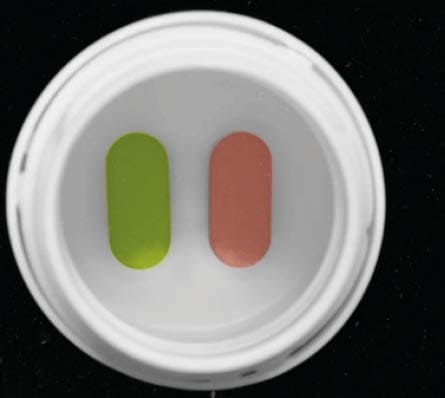Antibiotic treatment for bacterial infections can reduce the abundance and diversity of gut bacteria, leading to potentially severe diarrhea and gastrointestinal symptoms.
Previous studies suggest that taking probiotics can reduce the risk of antibiotic-associated diarrhea.
A recent study reviewing data from randomized controlled trials suggests that supplementing with probiotics could help prevent or attenuate the changes in the diversity and composition of gut microbiota associated with antibiotic treatment.
A recent systematic review published in the Journal of Medical Microbiology suggests that supplementing with probiotics could prevent or diminish the negative effects of antibiotics on the composition and diversity of gut microbiota while reducing the risk of antibiotic-associated diarrheaTrusted Source.
The study’s lead author Dr. Elisa Marroquín, a professor at Texas Christian University, said that the study could help assuage concerns among healthcare professionals about co-prescribing probiotics with antibiotic treatments.
N“Although there is a concern about shifting the initial gut microbial composition by taking probiotics while on antibiotic interventions, based on the available human evidence, we suggest health professionals continue recommending probiotics when antibiotics are prescribed,” she said.
Dr. Arthur Ouwehand, technical fellow at International Flavors and Fragrances, Finland, who was not involved in the study, said there were many systematic reviews and meta-analyses that have documented the benefits of probiotics, especially in reducing the risk/duration/severity of antibiotic-associated diarrhea.,
“The assumed mechanism by which probiotics achieve this is thought to be through the stabilization of the intestinal microbiota. This [study] convincingly shows that things indeed work the way we thought they did.
The study also convincingly shows that it is indeed a stabilization of the intestinal microbiota and not just a ‘replenishment’ of the microbiota with the probiotic organisms.” Although antibiotics are effective against potentially life threatening pathogenic bacteria, they can simultaneously disrupt the composition and function of the gut microbiota. Specifically, antibiotic use can reduce the diversity and abundance of gut bacteria and allow infection by or the proliferation of pathogenic bacteria.










